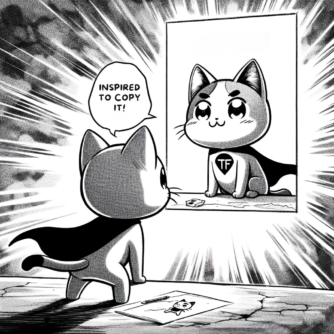In Atomic Habits, James Clear tells us:
“The more you repeat a behavior, the more you reinforce the identity associated with that behavior. In fact, the word identity was originally derived from the Latin word essentitas, which means being, and identidem, which means repeatedly. Your identity is literally your ‘repeated beingness.’ … Whatever your identity is right now, you only believe it because you have proof of it. … Identity change is the North Star of habit change. The remainder of this book will provide you with step-by-step instructions on how to build better habits for yourself, your family, your team, your company, and anywhere else you wish. But the true question is: ‘Are you becoming the type of person you want to become?’ The first step is not what or how, but who. You need to know who you want to be. Otherwise, your quest for change is like a boat without a rudder. And that’s why we’re starting here. You have the power to change your beliefs about yourself. Your identity is not set in stone. You have a choice in every moment. You can choose the identity you want to reinforce today with habits you choose today. And this brings us to the deeper purpose of this book and the real reason habits matter. Building better habits isn’t about littering your day with life hacks. It’s not about flossing one tooth each night or taking a cold shower each morning or wearing the same outfit each day. It’s not about achieving external measures of success like earning more money, losing weight, or reducing stress. Habits can help you achieve all of these things, but fundamentally they are not about having something. They are about becoming someone. Ultimately, your habits matter because they help you become the type of person you wish to be. They are the channel through which you develop your deepest beliefs about yourself. Quite literally, you become your habits.“
That passage is so good. “Identity is your repeated beingness.” “Quite literally, you become your habits.” Who do you want to be?
In Magic Words, Jonah Berger tells us:
“‘Hey, can you please help clean the classroom?’ And for others, they use a slightly different approach. They say, ‘Can you be a helper?’ Now, the difference between help and helper is quite small. It’s only two extra letters. Yet when students were asked to be a helper, they’re about a third more likely to clean up… ‘Hey, would you please vote in one condition?’ Or for some other people, they said, ‘Would you please be a voter?’ Now again, the difference between vote and voter is even smaller. It’s just one letter. Yet that one letter led to about a 15% increase in people’s likelihood of turning out to the polls… But what we care more about than taking particular actions is holding desired identities.”
Identity is powerful. Instead of leading, be a leader; instead of writing, be a writer; instead of speaking, be a speaker; instead of learning, be a learner; instead of teaching, be a teacher.
In Badass Habits, Jen Sincero tells us:
“Good habits are about who you decide to be, not what you decide to do.”
I have played around with multiple identities: world-class parent, professional optimizer, behavioral designer, well-being exemplar, happiness designer, heroic friend, pro programmer, fit to serve, etc.
I am a big fan of letting my identity drive my behavior, which drives my feelings.
At any given moment, you can ask yourself, what would the best version of me do? What would a professional optimizer do? What would someone immune to obstacles do? What would a world-class fill-in-the-blank do?




